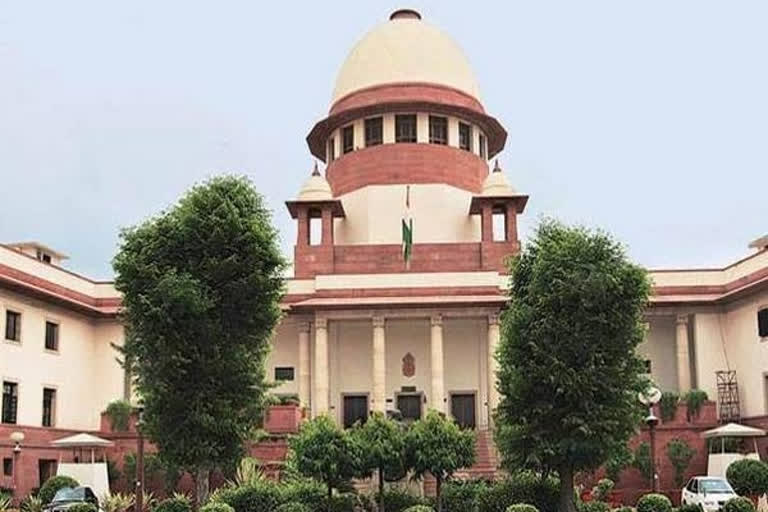New Delhi: The Supreme Court has adjourned the hearing into the Pegasus snoop gate to Tuesday. The bench asked the petitioners to serve a copy of the petitions to the Union of India and sought a reply from the government by next Tuesday.
The apex court earlier today heard a batch of petitions, including those filed by the Editors Guild of India, seeking a special probe into the Pegasus spyware scandal involving allegations that opposition leaders, journalists and others were targets. A two-member bench, headed by Chief Justice NV Ramana, is hearing the petitions. Justice Surya Kant is the second judge on the bench.
Kapil Sibal, senior advocate appearing for senior journalist N Ram and other petitioners, argued that journalists, public figures, constitutional authorities, court officers, academicians all are targeted by spyware and the government owed an answer as to who purchased it. "Where was the hardware placed? Why did not the government register FIR," he questioned.
He said this spyware is only sold to government agencies and can't be sold to private entities, adding NSO technology is involved in the international arena.
Senior Advocate Rakesh Dwivedi, appearing for journalist SNM Abdi, whose name was in the potential list of Pegasus targets, said the current snooping case was a larger issue involving constitutionality and jot just criminality. He said ordinary individuals writing on issues that concern the government cannot be subjected to surveillance.
Senior advocate Arvind Datar, who is appearing for two journalists who were in the potential Pegasus targets list, said civil remedy was useless as they did not know who hacked their phones and criminal provision under IT Act, that refers to infringement of privacy in relation to bodily parts was not applicable in this case. And hence, there was no provision for filing an FIR.
Chief Justice of India NV Ramana said that except newspaper cuttings, there was no other material in plea. "The petitioners are educated, have access to worldwide resources...they could have produced more material and it is is required for investigation," he said. He questioned why the matter had come to the court two years after the controversy became known.
The advocates said USA and France had taken action based on media reports. They said the cost of tapping into each phone was apparently $55,000. Sibal informed the court that he got to know this morning that a registrar serving in this court was also tapped.



